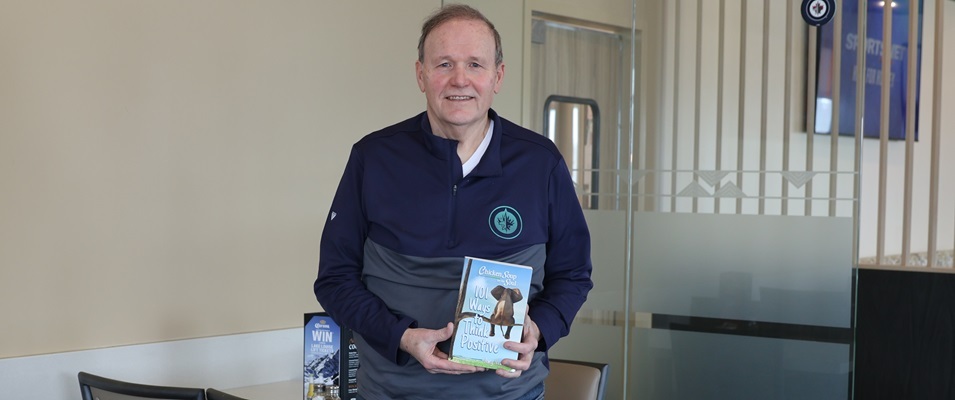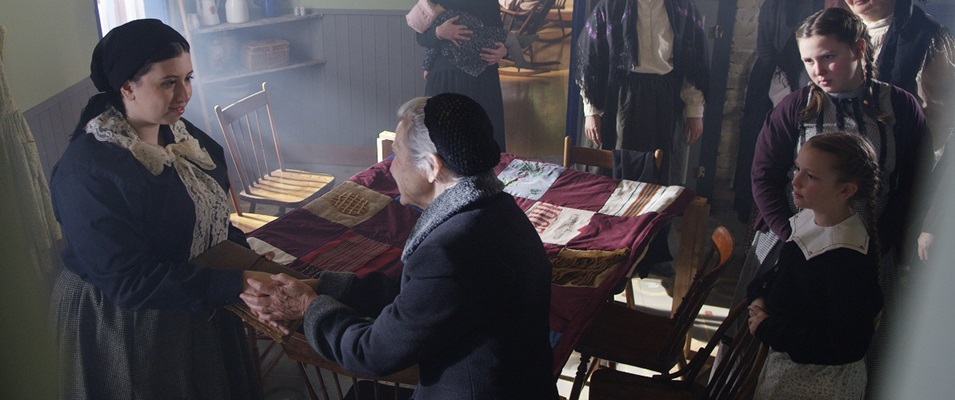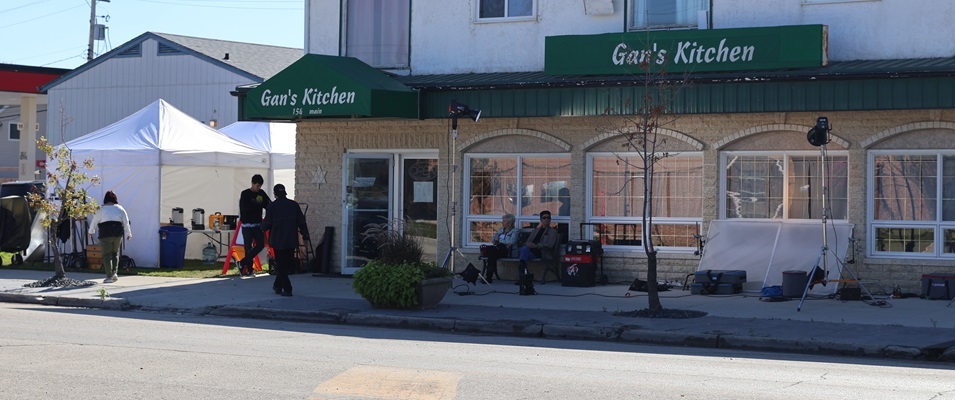
One of the pinnacles of any artist’s career is their moment of public recognition in the presence of esteemed peers. The Manitoba Book Awards is an annual awards ceremony held in Winnipeg to acknowledge the incredible achievements of our province’s many writers, editors, designers, and illustrators of the literary arts.
This year’s opulent gala, held at the Fort Garry Hotel on April 22, was hosted by Lara Rae, a Canadian comedian well known for her work as writer and developer of Little Mosque on the Prairie. Assisting her was Terry MacLeod, Emmy-nominated journalist and 33-year veteran with CBC radio.
Fourteen awards were presented, but one nominee in particular caught the attention of everyone in the ballroom, successfully taking the award for three different categories. Her name is Angeline Schellenberg, and her award-winning book, Tell Them It Was Mozart.
If winning three awards for one book isn’t impressive enough, it should be said that Tell Them It Was Mozart was Schellenberg’s debut book, a feat that sets the bar high for her, and other writers’, future endeavours.
I had the fortune of meeting Schellenberg at the gala, surrounded by family and friends there to share in her victory. She’s a soft-spoken young mother of two. Her book of poetry is best described by her publisher Brick Books: “Linked poems that uncover the ache and whimsy of raising children on the autism spectrum.”
“Tell Them It Was Mozart is about my relationship with my children,” says Schellenberg. “It starts with my story of growing up with two younger brothers with an intellectual disability called Fragile X Syndrome. I always wondered what it would be like to someday have a typical family like I saw on TV. At first when my children didn’t respond the way I expected, I thought I was missing the parenting gene. When my son was diagnosed in Grade One with an autism spectrum disorder, it was a relief. But a few years later, when my daughter was diagnosed with autism too, it was a struggle to accept that I’d never have those typical family experiences I’d planned on. I chose to embrace the mess. I’ve since learned that there is no typical family: we’re all messy.”
Though she now resides with her family in Winnipeg, Schellenberg spent her formative years on a farm near Niverville, growing up Angeline Falk, attending Niverville Collegiate Institute, and later Providence College. Writing, she says, has always been a part of her. She’s since learned to channel that talent into expressions of motherhood in the face of disabilities.
“Most of the challenges aren’t caused by autism, but by autism’s incompatibility with the outside world,” Schellenberg says. “People misunderstand my children’s expressions of pain or confusion as misbehaviour, and my attempts to comfort them as a lack of parental discipline… I know my kids are capable of great things, but I don’t know if the world is ready to welcome them. That keeps me up at night sometimes.”
For Schellenberg, writing is therapeutic.
“Sometimes in the middle of a difficult experience, I’ll think, ‘This will make a great poem,’ and it helps me see the humour in the moment. And after I’ve turned a painful memory into art, when I look back, I no longer see the pain; instead, I see the poem. Sharing my experience in a book has connected me to more parents. An understanding community is one of the best forms of therapy.”
Schellenberg lists a host of great mentors who have helped pave the way to her recent achievement. Her publisher, Brick Books, nominated her for the three awards: the Lansdowne Prize for Poetry, the Eileen McTavish Sykes Award for Best First Book, and the John Hirsch Award for Most Promising Manitoba Writer.
“It was overwhelming that these juries of established writers would affirm my first book,” says Schellenberg. “All three times, as they were announcing the names, I was holding hands with my son on one side and my husband on the other, and watching the expression on my parents’ and friends’ faces around my table. They were all so happy for me.”
As any good writer would be, she’s already working on a series of other manuscripts.
“While I was writing Tell Them It Was Mozart, I also completed a second manuscript of poems about my grandparents, three of whom lived in Niverville. I’m well into my third poetry manuscript and I’m brainstorming ideas for my fourth. I like to always have several projects on the go so that when I lose steam on one, I can switch to the other without losing momentum.”
But a debut book will always be close to a writer’s heart and it’s Schellenberg’s hope that this collection of poems will reach other parents struggling in the face of childhood disabilities.
“I’m open about the anxieties and frustrations of raising children on the [autism] spectrum, but humour and joy get the final word,” says Schellenberg. “The hope is in the fact that, no matter how different our families may be from what we expected or what we see next door, we enjoy one another. Things may never get easier, but when we have grace for ourselves and for our children, they can get better.”



















